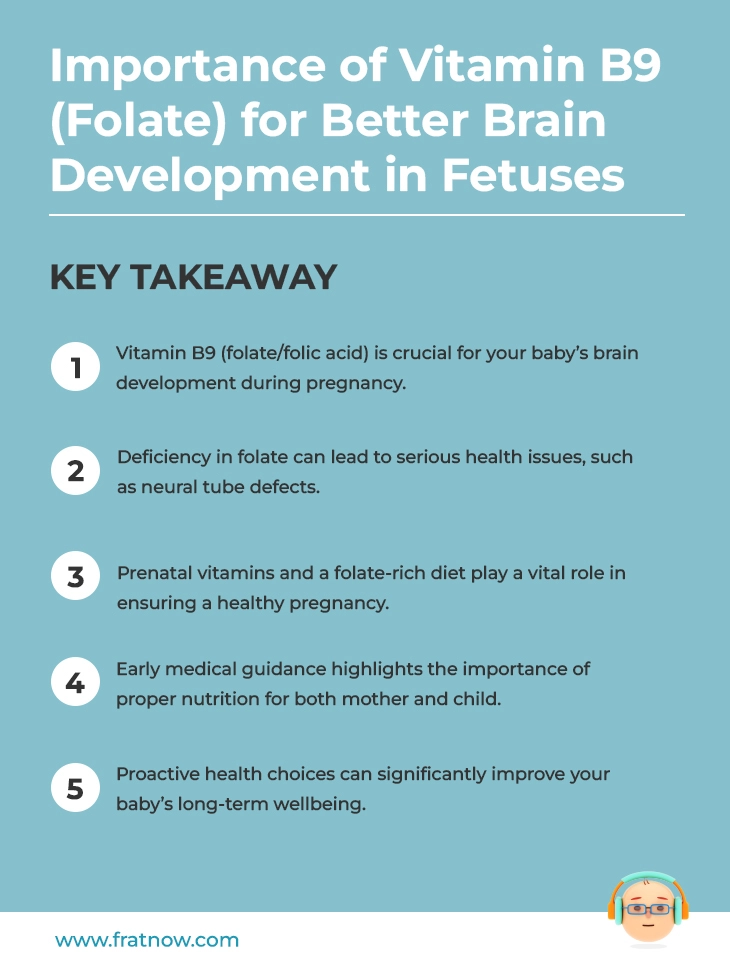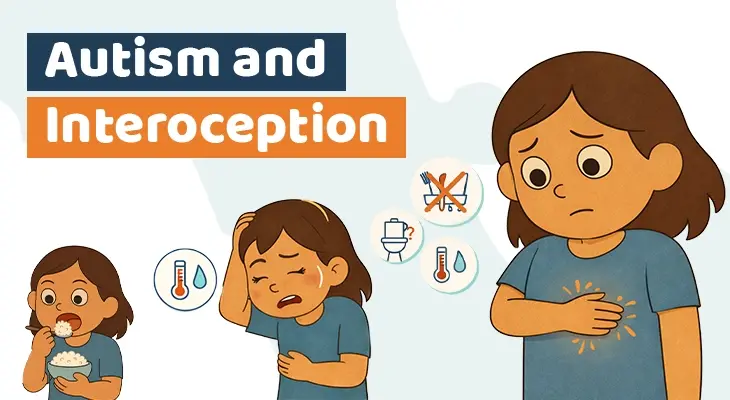
Download Download & share this Knowledge card in your network [Free Download]
Introduction
Imagine you’re a young couple, excitedly awaiting the arrival of your first child. You’re doing everything in your power to ensure a healthy pregnancy, from eating a balanced diet to getting plenty of rest. But did you know that there’s one nutrient in particular that’s essential for your baby’s brain development? That nutrient is vitamin B9, also known as folate or folic acid.
During your first prenatal appointment, your doctor emphasizes the importance of getting enough vitamin B9 during pregnancy. She tells you a story about a patient of hers who was deficient in folate during her pregnancy and gave birth to a baby with a neural tube defect. The defect required surgery and caused lasting health complications for the child. Hearing this anecdote drives home the importance of taking your prenatal vitamins and eating a healthy diet rich in folate to ensure your baby’s optimal brain development. You leave the appointment feeling motivated to prioritize your health and your baby’s wellbeing.

Download Download & share this infograph card in your network [Free Download]
What is Vitamin B9?
Vitamin B9, also known as folic acid or folate, is a crucial nutrient that plays a vital role in brain development, particularly in fetuses. Folate is a water-soluble vitamin that helps in the synthesis and repair of DNA and the formation of red blood cells. It is essential for the proper functioning of the nervous system, and a deficiency of this vitamin can lead to serious health problems, including birth defects and developmental disorders. Adequate intake of folate during pregnancy is essential to ensure optimal growth and development of the baby’s brain and nervous system.
Importance of Vitamin B9 for brain development in fetuses
Here are some of the reasons why vitamin B9 is crucial for better brain development in fetuses:
- Neural Tube Development:
Folate is essential for the development of the neural tube, which forms the brain and spinal cord in the early stages of foetal development. Deficiency of this vitamin during pregnancy can lead to neural tube defects such as spina bifida, a condition in which the spinal cord does not develop properly. - Brain Development:
Folate plays a crucial role in brain development, particularly during the first trimester of pregnancy when the brain is developing at a rapid pace. It helps in the formation of neural cells and the development of the cerebral cortex, which is responsible for memory, attention, perception, and thought. - Cognitive Function:
Adequate intake of folate during pregnancy has been linked to better cognitive function in children. Studies have shown that children born to mothers with higher levels of folate intake during pregnancy tend to have better language and reading skills, as well as higher IQ scores. - Behavioural Disorders:
Folate deficiency during pregnancy has also been linked to the development of behavioural disorders such as ADHD and autism in children. Research suggests that low levels of folate in pregnant women may alter gene expression in the fetuses, leading to changes in brain development and an increased risk of these disorders.
Sources of Vitamin B9
There are several food sources of vitamin B9, also known as folate or folic acid, that humans can consume to meet their daily recommended intake. Some of the best dietary sources of folate include leafy green vegetables such as spinach, kale, and collard greens, as well as legumes like lentils, chickpeas, and black beans. Other good sources of folate include citrus fruits, avocado, broccoli, and fortified cereals.
In addition to food sources, folate can also be obtained through supplements. Many multivitamins contain folic acid, and there are also standalone folic acid supplements available. However, it’s important to consult with a healthcare provider before taking any supplements, as excessive intake of folic acid can have negative health consequences. Pregnant women in particular are advised to take a folic acid supplement to reduce the risk of neural tube defects in their developing fetus.
To ensure adequate intake of vitamin B9 during pregnancy, it is recommended that women consume at least 600 micrograms of folate per day. This can be achieved through a combination of diet and supplements. Foods rich in folate include leafy green vegetables, citrus fruits, beans, and fortified cereals.
Conclusion
Vitamin B9 is a crucial nutrient that plays a vital role in brain development in fetuses. Adequate intake of this vitamin during pregnancy is essential to ensure optimal growth and development of the baby’s brain and nervous system. If you or someone you love is planning to become pregnant or are already pregnant, do ensure that they are getting enough folate to promote healthy brain development in their babies.
For information on autism monitoring, screening and testing please read our blog.




